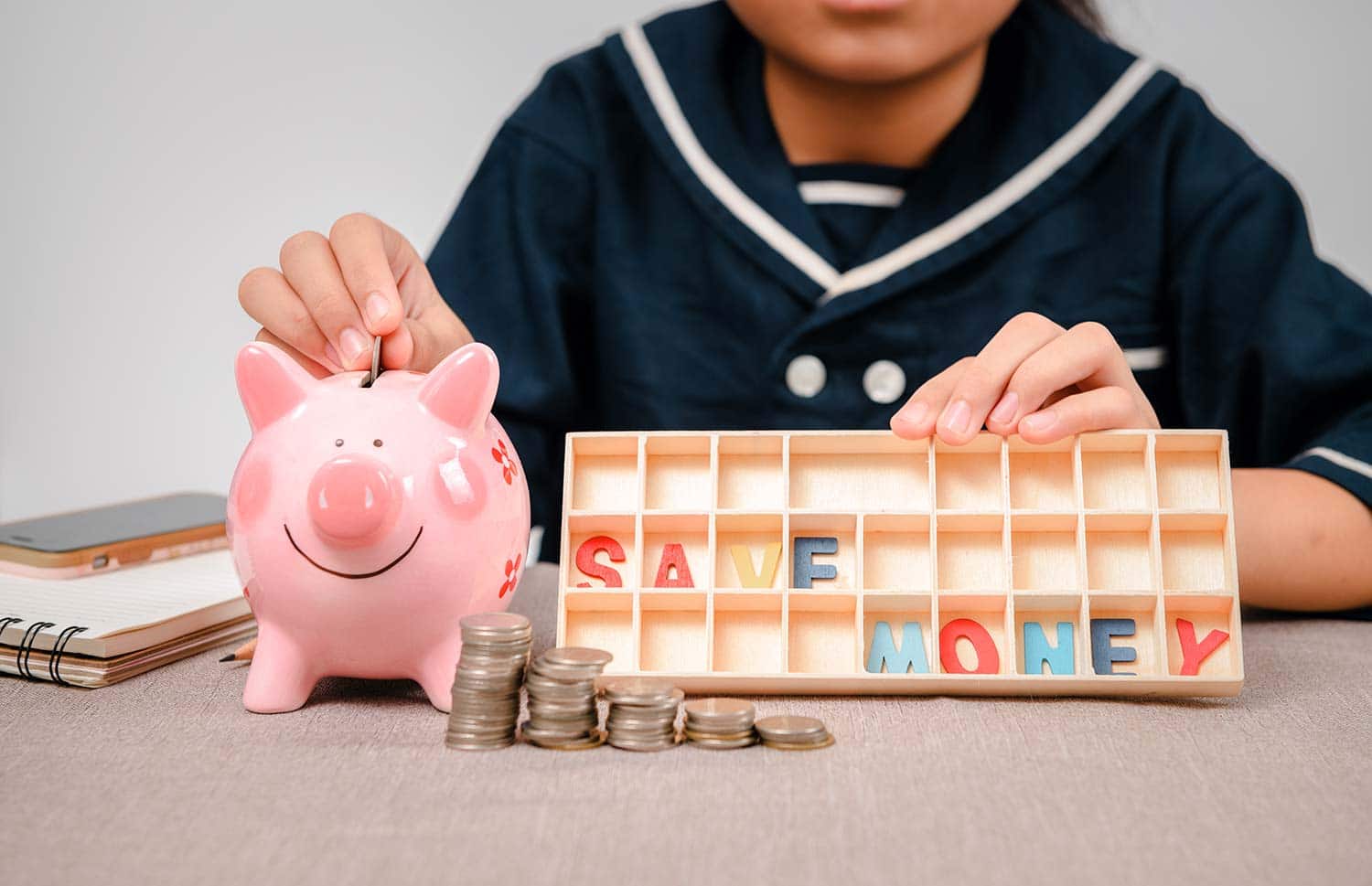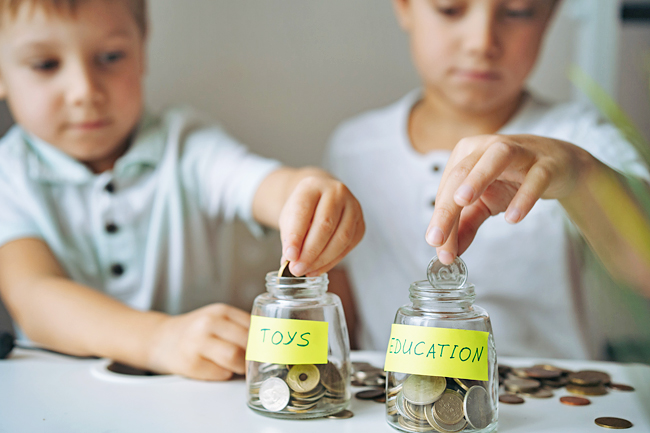Do you think children need to be taught financial habits?
Teaching financial habits to children is important because it empowers them to make responsible financial decisions as adults.
Best financial practices instill valuable skills such as money management, saving, and investing, which are essential for navigating the complexities of the modern economy.
Early financial education gives children the skills they need to avoid typical financial pitfalls like debt and overspending and to build a secure financial future.
These skills foster a sense of financial responsibility and independence, preparing children for real-world financial challenges. Ultimately, early financial education promotes lifelong financial stability and well-being.
The Power of Primary-Level Financial Education

Early financial education promotes lifelong financial stability and well-being.
Primary school is a formative time in a child's development, making it the perfect opportunity to introduce them to basic financial concepts in a fun and engaging way.
From collecting coins to understanding the value of saving, these early lessons set the stage for a lifetime of financial responsibility. Teaching the meaning of financial-related words such as bank accounts, loans, cash, cheques, and interest can provide a strong foundation.
We can teach kids about coins, notes, and the use of money through creative activities like drawing, songs, essays, and drama. These interactive methods help children grasp complex ideas in a simple and enjoyable manner. Ultimately, early financial education empowers children to grow into financially responsible adults.

Children who comprehend financial difficulties are more likely to exhibit empathy and responsible behaviour.
By incorporating financial education into the primary curriculum, we equip children with the tools they need to make informed decisions about money from an early age. Children learn the value of budgeting their pocket money, distinguishing between needs and wants, and understanding the concept of saving for future goals. These fundamental principles form the building blocks of financial literacy and lay the groundwork for more advanced concepts as children grow older. Additionally, this education supports parents, as children become more aware of cash flow issues and the financial pressures their parents may face. Children who comprehend these difficulties are more likely to exhibit empathy and responsible behaviour. In the end, early financial education promotes a stable financial environment in the home by empowering kids to handle their money sensibly.
Inspire Children to Become Financially Literate through Creating Fun Activities

Teaching children financial literacy can be both fun and educational through engaging activities.
Teaching children financial literacy can be both fun and educational through engaging activities. We can set up a pretend store where they use play money to buy and sell items, learning about budgeting and making choices.
Also, organise a savings challenge with money tills for different goals, helping them understand the importance of saving. Another option is to play board games like Monopoly to introduce the concepts of property investment and money management. We can use role-playing games where they can take on different jobs and earn "salaries" to grasp the concept of earning money.
Another interesting activity is to plan a family outing with a set budget and involve them in making decisions on how to spend the money wisely.
Creating a reward system at home where children earn points or tokens for completing chores and teaching them about earning and saving. Lastly, use online financial literacy games designed for children to reinforce these concepts in an interactive way.
Strong Decision-Making and Future-Readiness

The financial decisions they make will have a significant impact on their lives.
By nurturing a positive attitude towards money from an early age, we help children develop the confidence and competence they need to achieve their financial goals and dreams. As primary-level children transition into adolescence and eventually adulthood, the financial decisions they make will have a significant impact on their lives. By providing them with a solid foundation in financial literacy, we give them the tools they need to navigate the complexities of modern finance with confidence and competence. Whether it's managing a bank account, applying for a loan, or planning for higher education, children who have received early financial education are better prepared to succeed in an increasingly complex financial world.

Help them set savings goals, like buying a toy, a story book, or saving for studies.
Encourage children to save a portion of any money they receive, whether it's from extra pocket money or gifts. Help them set savings goals, like buying a toy, a story book, or saving for studies.
Also, teach children the importance of budgeting by helping them allocate their money for different purposes, such as saving, spending, and giving. This helps them understand the value of money and prioritise their spending.
Another important fact is that it teaches children to resist impulse purchases and wait for things they want by setting savings goals and waiting until they have enough money to buy what they want instead of spending impulsively.
Encourage Children’s Involvement in Financing

We can also encourage children to work in occupations that are acceptable for their age and earn money on their own.
Additionally, encouraging children to plant some fruits or vegetables for home use can help to inspire them and inculcate in them the principles of hard work and responsibility when we buy such vegetables and offer them a little tip for their labour.
It's crucial to teach kids the distinction between wants and needs, such as the necessity for clothing, food, and shelter versus accessories like video games or fashionable stuff. Tell them that spending money on necessities should come before what they want.
When kids learn to shop around and compare prices, they'll become more smart consumers and be able to make bigger financial gains.
Being financially literate is a lifelong adventure that starts in childhood, not just a talent for adults. We enable children to acquire sound financial habits, make wise decisions, and reach their financial objectives by instituting financial education in elementary schools. It's a financial investment in their future. Together, as educators, parents, and legislators, let's make sure that every child has the chance to build a solid foundation in financial literacy right from the start.

Dr. Nadee Dissanayake
This email address is being protected from spambots. You need JavaScript enabled to view it.
Founder/Secretary - CUP
Senior Commissioner
Inland Revenue, Sri Lanka





















